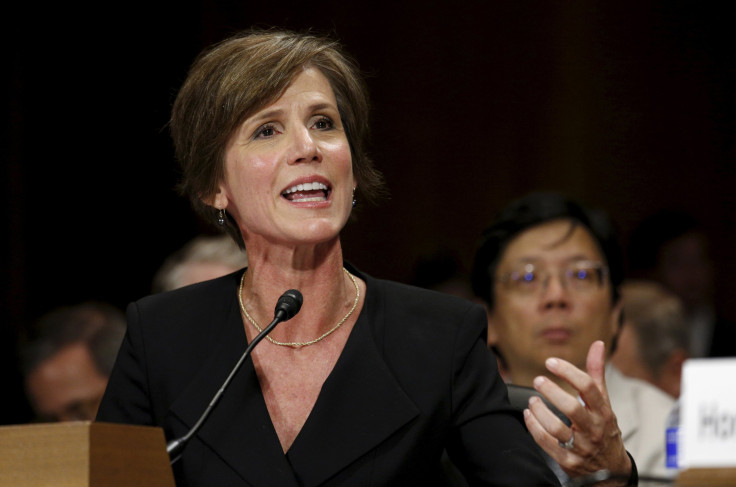US Outlines Policy For Investigating Corporate Executives

By David Ingram
NEW YORK (Reuters) -- The U.S. Department of Justice laid out on Thursday a revised policy for prosecutors to focus on wrongdoing by corporate executives, drawing criticism it was too late after the 2008-09 financial meltdown and housing crisis.
The new guidelines, outlined in a memo to federal prosecutors across the United States, were met with skepticism from at least one consumer advocacy group and politicians critical of President Barack Obama's administration.
The memo "amounts to a striking admission that the DOJ's policy on Wall Street corporate crime has been completely ineffective," Robert Weissman, president of Public Citizen, said in a statement.
Weissman said the real test would be whether or not prosecutors can put the policy into action.
Deputy Attorney General Sally Quillian Yates said in a speech at New York University School of Law that companies must be more willing to give up their own officers or employees, not hide people's crimes when authorities start asking questions.
"We're not going to let corporations plead ignorance. If they don't know who is responsible, they will need to find out," Yates said.
The memo circulated on Wednesday said that in future investigations a company would not receive any credit for cooperating unless it disclosed all relevant facts about the people involved in suspected wrongdoing or crimes.
It may be some time, though, before there are visible results. The changes apply to current matters only to the extent it is practicable, according to the memo, and complex white-collar investigations often take years to complete.
It also remained to be seen how long the shift in emphasis would last because a new administration will take office in January 2017. Yates became deputy attorney general in May and along with U.S. Attorney General Loretta Lynch she may follow Obama out of office at the end of his second and final term.
The written changes codify some practices that Justice Department officials have been pushing already, especially after criticism by lawmakers and the general public that the government has not investigated individual executives vigorously enough about their conduct in the lead up to the global financial crisis.
One critic, U.S. Senator Elizabeth Warren, has requested a briefing on the memo, a Senate aide said. Warren, a Democrat from Massachusetts, has called for more prosecutions of Wall Street bankers.
Senator Bernie Sanders of Vermont, who is seeking the Democratic Party nomination for president, said the government made a mistake by not "prosecuting the people responsible" for the economic crash.
"It is not acceptable that many young people have criminal records for smoking marijuana, while the CEOs of banks whose illegal behavior helped destroy our economy do not," Sanders said in a statement.
Corporations put a high value on getting credit for cooperating with prosecutors because that can mean lower fines or less serious charges against the business itself.
Cooperation with authorities is "all or nothing," Yates said. "No more picking and choosing what gets disclosed. No more partial credit for cooperation that doesn't include information about individuals."
Typically, cooperation takes the form of an elaborate internal probe. A company suspected of wrongdoing will hire a large law firm, whose lawyers review documents, conduct interviews and deliver their findings to internal counsel. The company then sends potential evidence of wrongdoing to the Justice Department.
Yates' memo also said that corporate investigations would focus from the beginning on individuals, rather than focus solely on wrongdoing by the company.
In practice, the changes may mean that corporate officers and employees retain their own lawyers at an earlier stage of an investigation once the Justice Department has expressed interest in a subject, law firm Cleary Gottlieb Steen & Hamilton said in a note to clients.
"Early consideration should be given to potential conflicts of interest between companies and their employees," the law firm said.
One critic of the administration, U.S. Representative Jeb Hensarling, a Texas Republican and chairman of the House Financial Services Committee, was scornful about Yates' memo.
"If someone breaks the law, they should be held accountable. Seems like lawyers at the Obama Justice Department would've learned that in law school, so I'm astounded it takes a memo to make that the administration's official policy," Hensarling said in a statement.
(Additional reporting by Sarah N. Lynch in Washington and Mica Rosenberg and Karen Freifeld in New York)
© Copyright Thomson Reuters 2024. All rights reserved.







